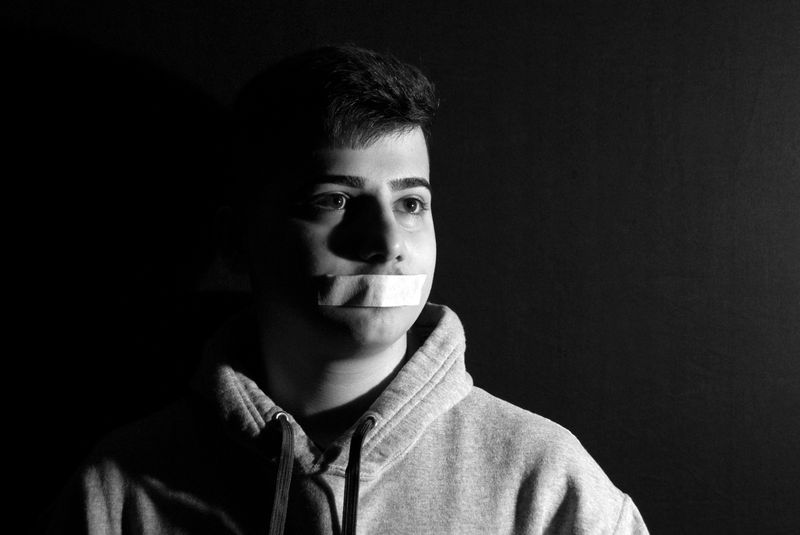We Are America
My Inner Language
By Laith

Maine East High School, Illinois
When I was younger, I felt as if my family members were at a party and I wasn’t invited. I couldn’t keep up with how fast my family spoke in Arabic. Just as I thought I knew what they were saying, they would completely change the subject. When I moved to America at three I thought I should focus on learning English because that was the language that most people used here. Doing this resulted in my lack of fluency in Arabic. Over the years, I have had to stop family members to find out the meaning of a word or a sentence. This became frustrating, especially when the topic of our discussion was important.
Growing up, I always felt hesitant when talking to my family. Any time I would have a conversation with my cousins or parents, I would always mess up the use of a word and how to accurately pronounce it. They never let me get past it and would always call me out for not being able to speak properly. “Are you trying to say shopping? You’re saying it horribly,” my cousin would repeatedly say to me. “Stop being so rude, I don’t make fun of you when you speak incorrectly,” I would say back to him.
When it came to my language, it felt like they were trying to push me out of what made me, me. This made me feel like they were better than me and that they deserved more than me just because they knew more. I began to feel insecure, and sometimes I’d get remorseful because when I thought about it, it was my fault. I should have treated both languages as equally important. I hate that I didn’t commit to learning both languages because if I did, I wouldn’t be dealing with these obstacles. To me, learning Arabic would help me connect with my family and be closer with them so it’s truly important for me to be able to speak Arabic fluently.
Not knowing Arabic to the fullest extent prohibited me from communication and interaction. Anytime we would go to a family gathering, I would always be quiet and not talk because I didn’t know what to say. I have two amazing grandmas, one I’m extremely close to and another who I’ve spoken ten sentences to. Part of the reason is because I don’t feel comfortable when talking to her, and the language barrier doesn’t allow me to get to know her as well as I’d like to. I left Iraq when I was little so I don’t remember anything about her. Today, the only way we can talk is over the phone and I’m not able to talk to her because of my limited Arabic. Whenever my parents would speak to my grandma they would always call me over. “Come talk to your grandma,” my dad would say to me. I would respond, “I don’t know what to say.”
I never felt comfortable talking to her because I didn’t know how to take what I was thinking and make it into words.
Now, I’ve started to watch Youtube videos that teach me the Arabic alpha- bet and pronunciation. My motivation to learn Arabic is so I can finally get to know my grandma. When speaking to people, I try to pick up phrases, words, and infer what the person is saying. At the end of the day I’m still growing up and as I do, I will continue to learn Arabic so I can connect better with my family members and be confident when speaking. My dad has gone on trips to Iraq once a year for the past three years. “Next time I go, why don’t you come with me Laith? Your grandma really missed you,” my dad has repeatedly said to me. I always answer in the same way, “I don’t know how to speak, so how would I be able to speak with her.”
I don’t feel comfortable going to Iraq because I don’t feel like I belong there. I left so young that I don’t really know much. I hope to learn more so the next time my dad asks me I can be confident and tell him I’m ready. I would love to be able to get to a point where I can be proud to call myself bilingual.
© Laith. All rights reserved. If you are interested in quoting this story, contact the national team and we can put you in touch with the author’s teacher.